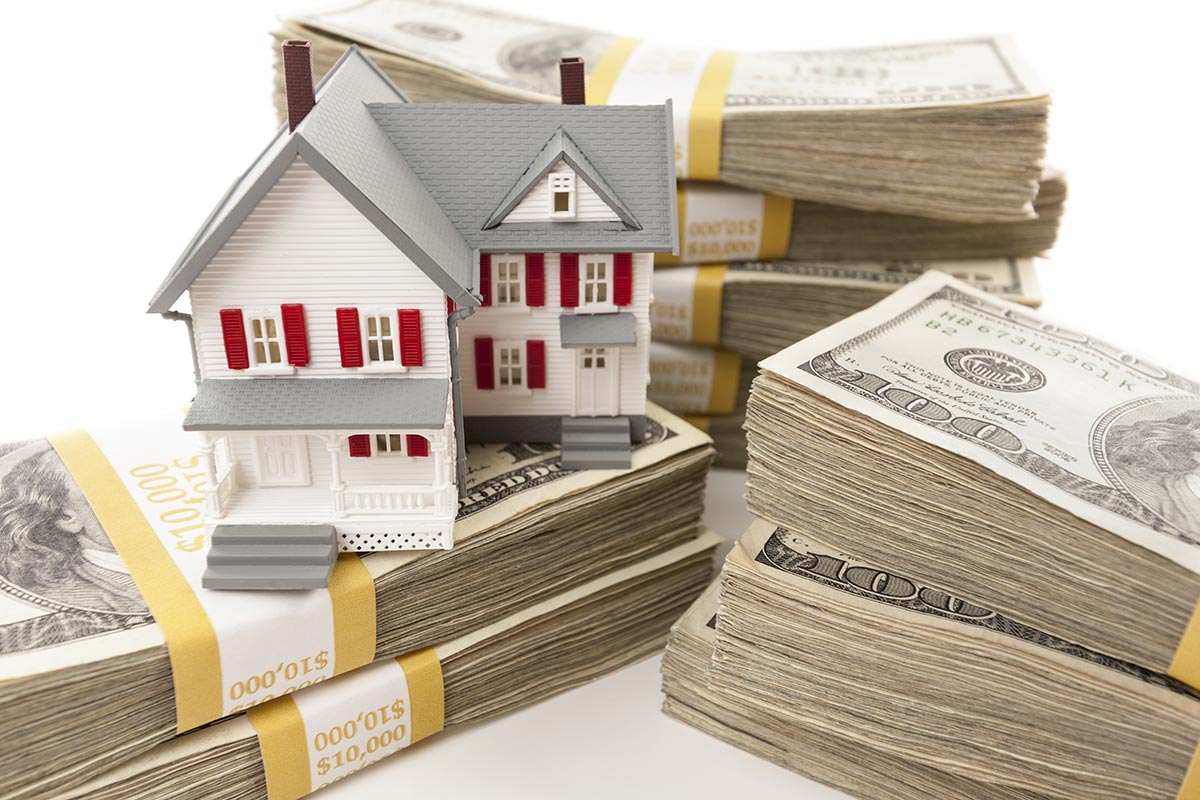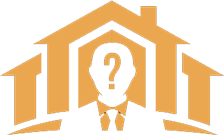There is nothing like owning your home. Home ownership is a dream that almost all of us have. Alas, it is not that easy to do.
One of the biggest roadblocks to buying a house is the down-payment. Although some can afford to pay the monthly mortgage, it is not easy to save for the down-payment. And some get discouraged because as time flies by, the price of real estate keeps increasing.
Can you buy a house with only $30,000 saved? With a little creativity and a good mortgage, yes you can. If you are a first-time home buyer, it is important for you to understand how mortgages work and how much down-payment you need to finally buy your dream home.

Steps to Determine how much you can afford to pay for a home
If you are serious about planning to buy a house in Canada, it is important to take the initial steps to determine how much you can afford. You are going to make a huge financial investment. Therefore, the very first step is to prepare your finances.
How much money have you saved for your down-payment? If you have $30,000 in savings, will that be enough to buy a house?
To know if it is enough, you need to know the average prices of homes in your target neighborhood for the kind of property you want.
Here’s how down-payment rules work for buying a house in Canada.
Starting February 2016, the rules for minimum down-payment for mortgages in Canada were changed. According to Canada Mortgage and Housing Corporation, the minimum down-payment requirements are as follows:
- Properties $500,000 or less require at least a 5% down-payment
- Properties above $500,000 but less than $1 Million require 5% for the first $500,000 plus 10% on the remaining balance
- Properties above $1 Million require at least 20% down-payment
But wait, are there other costs related to your home purchase that you’ll need to pay? Actually, aside from your down-payment, you will need to pay for a few more things.
- ✓ Home inspection – average of $350 to $500, depending on the size of the home
- ✓ Land transfer taxes (depends on the province)
- ✓ Legal fees
- ✓ Home insurance
- ✓ Utilities
- ✓ Moving expenses
As a home buyer, you have the distinct advantage of hiring a real estate agent without paying a commission. Your real estate agent can definitely help you with finding a good property to buy within your budget and assist you with other things such as getting a home inspection or a real estate lawyer.
Your real estate agent will be working for your best interests but will be compensated from the commission to be paid by the seller.
Save on home ownership costs with the right down-payment amount
Just because you can pay only 5% down-payment doesn’t mean it’s your best option.
Although mortgage rules allow you to pay this minimum, it is also advisable to pay as much as you can afford such as 20%. Mortgages with at least 20% down-payment are called conventional mortgages while those with less than 20% are called high-ratio mortgages.
High ratio mortgages need to be insured by mortgage default insurance. This type of insurance is required to protect the lender in case of borrower default. The premiums vary but are usually from 0.5% to 2.75% of the amount of the mortgage.
The insurance premium can be paid cash or added to your mortgage amount (which then earns interest) and may be subject to provincial sales tax.
Mortgage default insurance will be an add-on cost every year to your home ownership costs.
3 Reasons why the amount of Down-payment is critical
The amount of your down-payment is CRITICAL because it has a huge impact on these 3 things.
1. Your price range
Depending on how much down-payment you want to make (5, 10, or 20%), your cash for down-payment will dictate how much your home should cost. This means you have to look only at houses within that price range.
As a result, many home buyers opt to pay only 5 or 10% down-payment in order to buy a more expensive home and get a bigger mortgage.
2. Amount you will borrow and your monthly mortgage
If you borrow more, your monthly payment and interest over the period of your mortgage is higher. With a bigger down-payment, you can lower your monthly mortgage expenses.
3. Amount of mortgage default insurance
The amount of your mortgage default insurance gets smaller as your down-payment decreases.
The amount you decide to pay for your down-payment is your personal choice based on factors such as affordability and financial capacity.
You will also need to determine your priorities such as being able to buy a bigger home but with a smaller down-payment or choosing a lower-priced home with a bigger down-payment. It all boils down to what you deem important.
Comparison of Home Cost Based on your Down-payment
To show you what your home cost will look like based on different down-payment amounts, below is a sample calculation based on a property for $320,000 with a mortgage rate of 2.94% for 25 years of amortization.
The mortgage rate is only locked-in for a specific period, as in this case, for 3 years.
| 5% | 10% | 15% | |
| Down-payment amount | $16,000 | $32,000 | $48,000 |
| Mortgage Amount (25 years) |
$316,160 | $296,928 | $279,616 |
| Mortgage Insurance | $12,160 (at 4%) |
$8,928 (at 3.1%) |
$7,616 (at 2.8%) |
| Monthly Mortgage (25 years) |
$1,581.35 | $1,485.15 | $1,398.56 |
| Balance After 3 years | $289,230.22 | 271,636.57 | $255,798.93 |
** Figures are estimates for illustration purposes only
** Figures can vary depending on prevailing rates and choice of lender
** Figures include mortgage default insurance
As you can see, your mortgage amount significantly changes based on your down-payment amount.
While monthly mortgage variances would seem small, the total mortgage paid at the end of the term would be significant.
But it is also important to consider the cost of the opportunity to purchase a home and try to use other means to get additional funds for your down-payment.
When you have a good buyer’s agent at your side, you can receive expert advice about finding a mortgage, making an offer to buy a property, and many other critical aspects to a home purchase.
You can connect with the best real estate agents by filling-out our short online request form.
Where to Source More Funds for a Down-Payment
If you already have $30,000 saved but want to save more for a bigger down-payment, you can get more funds with a little creativity and discipline.
1. Personal savings over time
Once you have a targeted amount you need to raise for your down-payment, you can force yourself to set aside a certain portion with every pay check.
2. Borrow from family
Many individuals also reach out to family members to borrow money towards a down-payment, especially parents or siblings.
3. RRSP Home Buyers’ Plan
This option allows first-time home buyers to withdraw up to $25,000 from their Registered Retirement Savings Pan (RRSP) to be used to buy a house. This is tax-free and can be amortized over a period of time.
It is important to determine your financial capacity when deciding how much income you need to buy a house. You can also check on average home prices in major Canadian cities.
Getting the Best Mortgage – Tips for home buyers
Home buyers should try to get the best mortgage rate possible. Here are a few tips when shopping for a great mortgage to buy a house.
It is important to shop around to find the best rates. Traditionally, customers go to their banks where they have a history to apply for a loan. It is good to know what else is available in the market. With a good credit score and borrowing history, you can have more leverage with a lender.
Find Good Mortgage Deals from Brokers
Talking to a mortgage broker is a great way to find better mortgage deals as a broker has access to multiple lenders. Customers don’t pay a mortgage broker’s fees so it is to a home buyer’s interest to find out how a broker can help.
It is also important to look at other aspects of a mortgage aside from the rate. Check if the mortgage can be moved from one property to another, the penalty cost, and penalty for early repayment.
First Step to Buying your First Home- Mortgage Qualification
The first step to buying your first home is a mortgage pre-qualification. You should get this done before you start looking at houses, before talking to a real estate agent, or going to open houses.
You want to know how much you can afford to buy a home and how much you can borrow. This knowledge will make it much easier for you to determine the price of properties you can consider and to prepare your finances.
By getting a pre-qualification online, you will mark yourself as a serious buyer and will be in a better position to look for a property to buy or to make an offer to buy a house.
How to Qualify for a Mortgage
A pre-approval process can start as early as 120 days before you even start looking at houses for sale. You will need to provide documentation to prove your income, the source of your income, your assets and liabilities. Every lender will check on your credit to establish your credit worthiness.
Liabilities will include any of the following:
- Car loans
- Student loans
- An existing mortgage
- Credit lines
- Credit cards and other loans
- Liens
- Child support
Most lenders give a written confirmation of a pre-approval. This means your interest rate is guaranteed for a certain number of days, usually 60-120 days. It is important to understand that a pre-approval does not guarantee you will get a mortgage because the property information is yet to be provided.
Even after you have obtained a lender’s pre-approval, you are still free to look for other lenders.
Pre-approval is different from pre-qualification
Pre-approval is different from pre-qualification although many get confused and use them interchangeably.
With a pre-qualification, lenders don’t verify your financial information and will say that you may be qualified based on information you provided. With a pre-approval, lenders will do a more cursory check of your financial information and provide you with a locked-in rate for a certain period. The lender will also check on your credit score.
Real Estate Agents Will Help with your offer to buy a house
Once you have established your qualification to take out a mortgage, you can start looking for a good real estate agent to help with your home purchase.
Real estate agents understand how mortgage pre-approvals work. Your agent may advise you to include “conditional on financing” in your offer to buy a house.
Get an Expert to Help You Make an Offer
An offer to buy a house is one of the most important steps in the home buying process. With a good real estate agent, you will have an expert by your side to advice you about how much to offer based on fair market value and to ensure that the conditions of the sale are in your best interests but also acceptable to the seller.
Without someone to negotiate successfully on your behalf, you can lose the opportunity to own your dream home.
Find the Best Real Estate Agent for to Buy your New Home
Did you know that it doesn’t cost you anything to hire a real estate agent to buy a house?
That’s right – buyers don’t pay real estate commissions. Considering this fact, it is to your every advantage to hire the best real estate agent to help you.
How can you find a good real estate agent? Don’t just get your neighbor, or a friend of your parents, or someone you knew from college.
The best way to find the best real estate agent is to Compare Real Estate Agents based on credentials, track record, expertise, and personality that suits you.
Make home buying Enjoyable and Smooth
It is important for you as a home buyer to have an enjoyable and pleasant home buying experience.
You can request for free real estate proposals from experienced real estate agents in Quebec. Fill-out our short online request form to start comparing real estate agents that specialize in your area.
This service is free and no obligation! It’s just the most convenient and easiest way to start your search for the best real estate agent.





